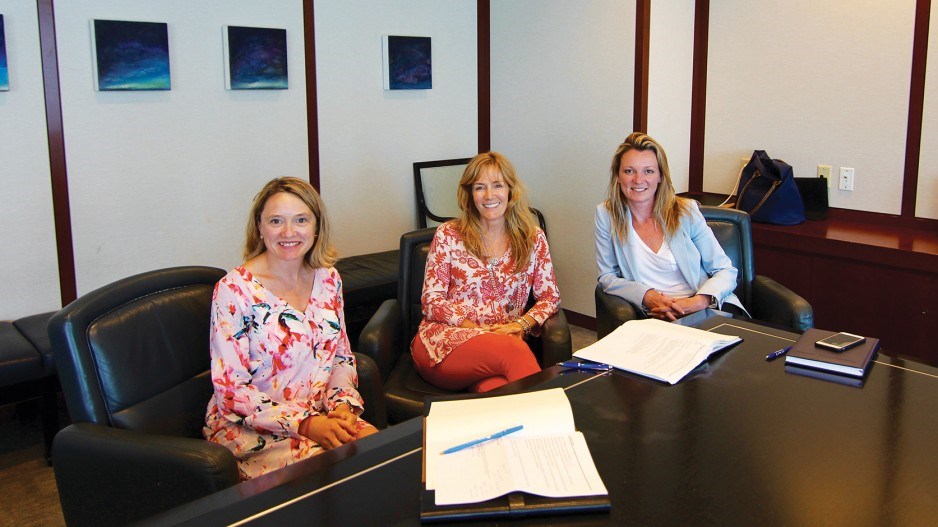Banking institutions across Canada might have moved the needle slightly when it comes to gender equality but, on the capital-markets side of things, women fall far short of equal representation.
According to a recent McKinsey Global Institute report, gender parity could unlock $28 trillion of additional annual gross domestic product by 2025 – equivalent to the U.S. and Chinese economies combined.
The report found that 240 million workers could be potentially added to the labour force through higher female participation.
Additionally, the McKinsey report found that women make up half the world’s working-age population but generate only 37% of gross domestic product, and women perform 75% of global unpaid work.
One Canadian organization is working to close the gender gap for young women, providing advice and helping them make strong professional connections as they approach the beginning of their careers.
Women in Capital Markets (WCM) is an advocacy group focused on creating a community of female business professionals across capital markets, finance, law and related industries.
Based in Toronto and with chapters in Montreal, Calgary and Vancouver, WCM is the largest professional network of women in Canadian capital markets.
Jennifer Reynolds, the organization’s president and CEO, acknowledged female representation in finance and banking has improved in recent years, but she said the fight is far from over.
At the Bank of Montreal (BMO), for instance, “senior leaders are about 40% female, so that is real progress, but it needs to translate to the capital markets, which is a bigger challenge as there isn’t as big of a pipeline,” she said.
“Corporate banking has done quite well, and the trading floor at the more junior levels, but at senior levels we are a long way from where we should be. We are only at about 12% of managing directors and senior leaders in the firm being female in the capital-market side.”
Before taking on her role at WCM, Reynolds spent 15 years in the capital-markets industry, mainly in investment banking, holding senior roles with BMO Capital Markets and Stonecap Securities Inc.
Of the many issues involved in gaining fairer representation, one of the most prominent is transparency in reporting, Reynolds said.
“Senior leadership is all about transparency; you have got to have targets and they have to be public,” she said. “You have to hold everyone accountable; that means the numbers have to be public and you have to report on them each year.”
Sitting in the BMO boardroom on West Georgia Street, Reynolds, along with WCM Vancouver chapter chairwomen Catherine Heath, co-founder of WCM and portfolio manager at Leith Wheeler Investment Counsel Ltd., and Kirsten Kennedy, managing director at BMO Capital Markets, discussed the challenges women continue to face in Canadian capital markets.
“The other thing that would really promote women in capital markets would be flexibility in workspace, because it’s notoriously inflexible sitting on a trading floor,” Heath said. “Sometimes it’s tough to even get out for a bite, let alone having to leave if there is a sick child.
“The banks promoting women in this area need to be aware that there tends to be a greater need for flexibility around child-care issues.”
At the same time, Kennedy said, the hiring process needs to eliminate possible subconscious biases.
“We have done a lot of work at senior levels at the bank in our interviewing process, ensuring that we have different interviewers so that there may not be naturally hidden biases like having the same background as someone or going to the same university as someone,” Kennedy said. “We are really rotating and we are really forcing each other to be challenged and bringing in diverse groups of different individuals both to interview and as interviewees.”
Last year, WCM hosted 15 initiatives in its first year in Vancouver alone. Launched by WCM in 2015, SheBiz is one of those initiatives that has grown substantially more popular.
SheBiz is a daylong event that features women in leadership roles from the technology sector sharing advice and career experience. This will be the second year the event will be held in Vancouver. It will reach over 1,000 high school students.
Additionally, WCM runs its UniConnect program, an on-campus event for female university students in Vancouver interested in pursing a career in capital markets. WCM is also launching a mentorship program this year to pair young women with role models at the early stages of their career.
“Women are graduating in hordes every year, in greater numbers than men, but they aren’t going into those higher-paying positions,” Reynolds said. “I think that’s something that Canadians are always surprised by. We think of ourselves as embracing diversity and being ahead of the curve on these issues but we’ve actually been stagnant.”
Asked how business leaders can help build a more balanced future, Reynolds said, “Leadership [by institutions], transparency, setting targets, understanding structural biases, these are all things that will secure change.”




